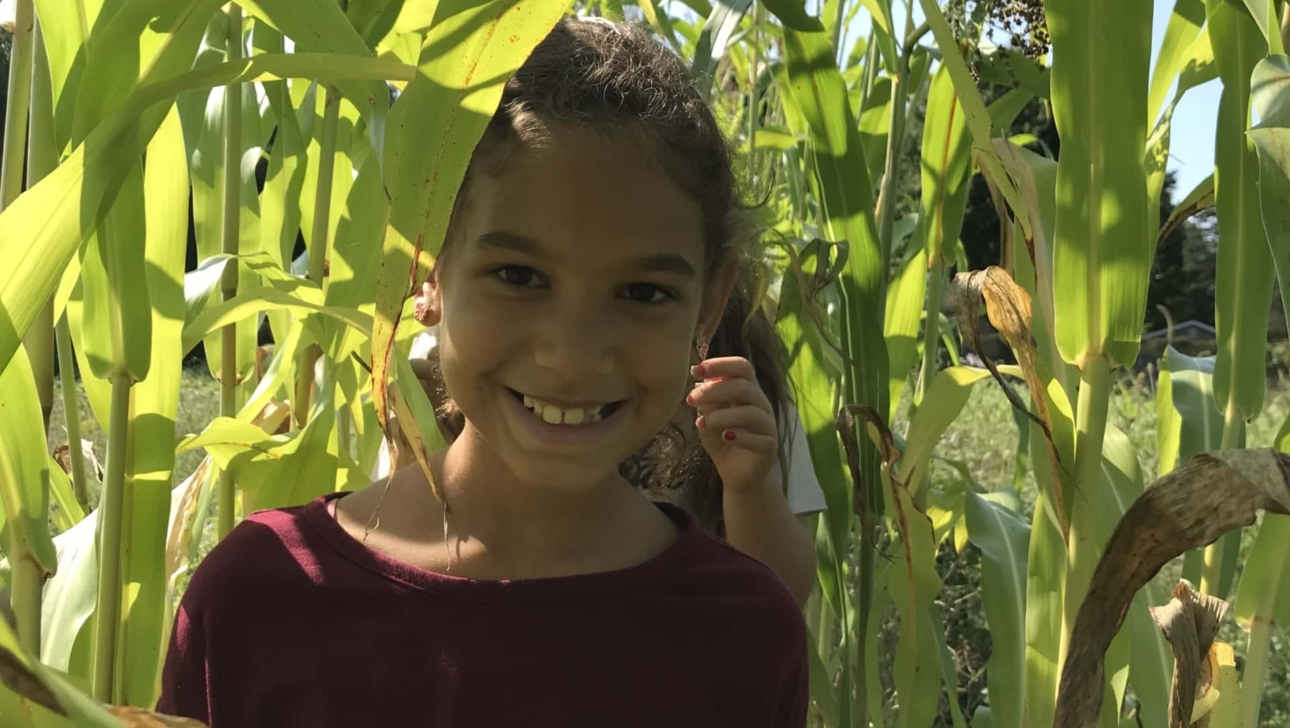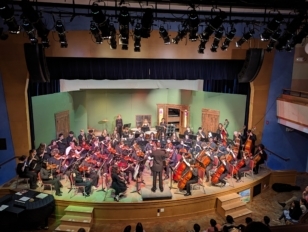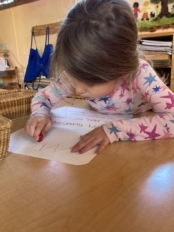At Green Meadow Waldorf School, the study of science has its roots in our Early Childhood program. Rain or shine, our children spend time outdoors each day, developing strong bodies, expanding their sensory experiences, and experiencing the weather, plants, animals, and local geography of our campus. Depending on the time of year, children sled down snowy hills, climb rocks in the Rocky Dell, interact with the creatures that come out after a rainstorm, and balance on fallen trees in the Fairy Woods. Such activities foster a lifelong respect for the earth and a deep appreciation for –and connection to – the natural world, building a foundation for scientific thinking in later years.
Then, in our Lower School, through nature study blocks in the First and Second Grades, children observe the wonders of the changing seasons in the woods surrounding the school and learn to be more aware of their surroundings, including local flora and fauna. This connection to nature culminates in very special experiences in Third Grade, when students deepen their learning about agriculture with weekly visits to our local Threefold Community Farm at the Fellowship Community, and take a five-day trip to Hawthorne Valley Farm, a biodynamic farm near Hudson, NY.
The farm trip is often the first time a child spends several nights away from their parents. In addition to all the important science and agricultural education taking place on the trip, students are also building independence and interdependence, as they learn to care for themselves and each other in a new way. Children at this age are naturally beginning to see themselves as people who are separate from their families, and they want to do more for themselves, on their own and with friends. This is an opportunity for parents to assist their children in being a bit more autonomous, in positive ways that help Third Graders develop courage, confidence, and life skills.
On the trip, children take care of their own belongings, and are responsible for the cleanliness of their rooms and the communal spaces in the house and dining hall. They serve food and wash dishes at mealtimes, and the animals depend on them to bring food and clean the barns and paddocks. Additional responsibilities include harvesting vegetables for and making soup, bread, and butter for the evening meal and making yogurt. And the children participate in all the farm chores! These include animal care and cleaning barns and paddocks as mentioned, chopping wood, gardening, and sometimes tapping trees for maple syrup (depending on the timing of the trip). These tasks build self-esteem, contribute to sense-making, and and foster a feeling of being needed and engaged in life. Parents often marvel at how much more mature and willing to help and take on responsibility their children are upon their return from the farm!
Getting up early in the morning for chores, learning the habits and personalities of the animals on the farm, eating fresh organic food, hiking, wading in the stream if it’s warm enough outside, playing games and hearing stories in the evening – these activities make memories that last a lifetime. And research shows that time outdoors is beneficial for children’s mental health.
In subsequent years, after the Third Grade farm trip, Green Meadow students go on all kinds of trips as a class, including camping trips, where they will canoe, hike, raft, and stargaze, honing practical and wilderness skills, and field trips to Boston; Washington, DC; or Philadelphia, where they will immerse themselves in the rich history of these cities.



